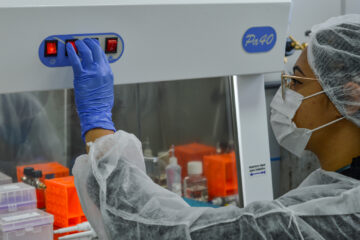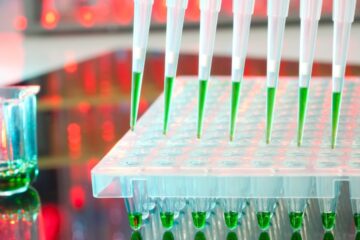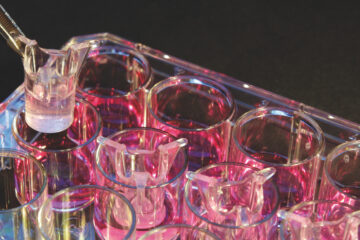Lucas Ribeiro, PhD (1) 1. Crop Biolabs
Currently, the Brazilian scenario in the field of Regenerative Medicine has a series of resolutions published by Anvisa from 2018 onwards. These resolutions have structured theoretical and practical models of advanced therapies.

Within the regulatory classification, advanced therapy products are therapeutic products developed based on human cells or genes. These are considered special medicines, subject to sanitary registration at Anvisa.
Consequently, advanced therapies must go through different stages of development, with proof of efficacy and safety of their cells and products.
The Collegiate Board Resolutions (RDCs) provide regulatory guidelines for the context of advanced therapies. For exemple, the RDC No. 508, OF MAY 27, 2021, which provides for Good Practices in Human Cells for Therapeutic Use and clinical research. This RCD emphasizing guidelines so that Cell Processing Centers (CPCs) can handle advanced therapy products under conditions adequate, with quality criteria for later application in humans.
Other importants RDCs for this context are:
· RDC No. 506, OF MAY 27, 2021, establishes rules for conducting clinical trials with an investigational advanced therapy product in Brazil.
· RDC 505, OF MAY 27, 2021, addresses advanced therapy product registration requirements.
RDC 508 – Good handling and quality control practices.
According to RDC 508, CPCs are:
Cell processing center: establishment that has physical infrastructure, equipment, techniques and human resources. May be responsible for attracting and selecting Donors, including clinical, social, physical and laboratory screening, collection, identification, transport, evaluation, processing , packaging, storage and availability of cells of human origin or Products of Advanced Therapies for Therapeutic Use. Because of that, being able to also supply cells or Products of Advanced Therapies for research, teaching, training, quality control or Validation of processes.
Quality rigor for CPCs must comply with RDC 508. This RDC establishes criteria and actions so that cells and advanced therapy products can be made available in the standards required for therapeutic use.
In order to understand the quality parameters to be analyzed, it is worth highlighting some differences in the types of processing of advanced therapy products, being minimal manipulation therapy and extensive manipulation therapy. Therapies with minimal manipulation are established in Brazil and are the most performed. They are classified according to Anvisa as: processing of cells or tissues that does not significantly alter their biological characteristics. That includes differentiation and activation state, proliferation potential and metabolic activity.
The acts of cutting, separating, centrifuging, immersing or preserving in antibiotic solutions, concentrating, purifying, filtering, lyophilizing, irradiating, freezing, cryopreserving or vitrifying, among others that meet this definition, are considered Minimal Manipulation. While extensive manipulation therapies are all those that involve processes that alter any biological characteristics, cell culture in the laboratory is already extensive manipulation.
There is an extensive list of quality parameters, which in some cases require a diverse set of equipment, with instruments such as flow cytometry, molecular biology, among others.
The high financial investment to obtain this equipment and the insertion of a specific scientific team to monitor quality standards, make companies in the advanced therapy sector look for third parties that can perform some of these analyzes (outsourcing).
Supported by the guidelines of RDC 508, CPCs can outsource or delegate activities, as long as it is signed by contract, agreement or term of responsibility with the service provider.
All recent regulatory factors strengthen the research and innovation environment for advanced therapies. Other points are fundamental, such as the plasticity of the application of advanced therapies, which can be associated with neurodegenerative and cardiovascular diseases and other diverse pathologies, which are no longer easily resolved with conventional medications.
Associated with the country’s ethnic diversification, they favor an attractive environment for clinical studies, in addition to an interesting financial context when compared to the values of clinical trials in the US and Europe.
Furthermore, the infrastructure and know-how of Brazilian researchers and laboratories have shown that we can play a leading role in the development of technologies. Especially involving advanced therapies that can reach the population with positive impacts on the treatment of diseases.




